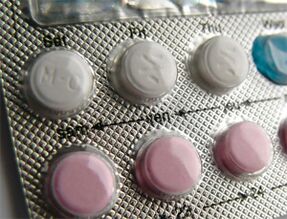
Today, modern medicine can offer drugs with many different therapeutic effects to treat the disease called prostatitis. If we talk about the most complex and severe manifestations of this disease, they can be cured if you follow all the doctor's prescriptions and undergo comprehensive treatment.
Prostatitis– the most common urological disease, which is an inflammatory process in the prostate. According to statistics, about 3 out of every 5 men between 20 and 50 years old have prostatitis. Even starting from 16-18 years old, you can suffer from this disease, for example, banal hypothermia in the pelvic area. Complications of advanced forms of this disease are impotence, infertility, inflammatory diseases of other organs of the genitourinary system, as well as prostate cancer.
Since there are many causes that lead to the development of prostatitis, it is impossible to single out the most effective way to treat prostatitis.
In the presence of infectious and non-infectious forms of the inflammatory process, many drugs or their complex combinations are used. The choice of drug is especially influenced by the patient's general condition, the presence of concomitant diseases and complications.
Treatment methods depend on the type of disease
Medications to treat prostatitis are available in many different pharmaceutical forms. These medications may come in the form of tablets, capsules, injections, and rectal suppositories. Using a combination of these drugs, you can get positive results faster and recover almost completely.
The complex of treatment procedures includes antibacterial therapy, prostate massage, immunostimulators and physiotherapy. Adjusting the patient's lifestyle plays a huge role in the treatment of prostate diseases.
Recently, traditional medicine has recognized traditional methods of treating prostatitis. Some medicinal preparations can be purchased in ready-made form at the pharmacy, while others can be collected and prepared independently. This herbal collection includes anti-inflammatory, diuretic, relaxing and calming herbs; This treatment may be used in addition to the main treatment after consultation with a qualified specialist.
Treatment of acute form
The acute form of prostatitis is caused by a variety of bacteria and pathogenic microorganisms. The main symptoms of this disease include systemic intoxication, increased body temperature and chills. Quite often there is a feeling of pain in the groin and lower back, as well as a feeling of needing to urinate more often. The process of urinating is quite painful and accompanied by pus flowing from the urethra.
Treatment of acute conditions- The use of drugs to treat prostatitis such as antibiotics. They have a fairly broad spectrum of activity and are able to penetrate prostate tissue. The most common types are macrolides, cephalosporins, protected penicillins, and fluoroquinolones.
The choice of an effective drug always depends on the type of microorganisms and their sensitivity to a particular antibiotic. Treatment is mainly outpatient; In especially severe cases, with severe intoxication, urgent hospitalization is indicated; When there are serious complications, surgical intervention is recommended.
Chronic phase
Chronic adenitis is the result of an acute episode that is not treated appropriately or an acute illness that is not completely cured. The characteristic symptom is persistent pain in the genital area, perineum or rectum. There may be a burning sensation when urinating, difficulty sleeping, and irritability. Complications of chronic disease are male infertility, erectile dysfunction, inflammatory processes of the pelvic organs.
Treatment should be outpatient, but takes longer in the acute form. Drugs for the treatment of chronic forms must be strictly selected by a specialist, the choice of the necessary drug depends on the quality of previous treatment and the sensitivity of the bacterial agent. In addition to antibiotics, immunomodulators, painkillers, physiotherapy and prostate massage are used.
At this stage, drugs such as rectal suppositories (suppositories) were widely used. They effectively fight glandular swelling, increase local immunity, improve blood microcirculation and inhibit pathogenic microorganisms. The most popular preparations are products based on extracts from bull's prostate tissue.
Quite often one can observe cases such as asymptomatic chronic prostatitis, which has no obvious signs and occurs silently in the body. The treating specialist knows which drugs should be used in this case, but most drugs with antibacterial and anti-inflammatory effects are recommended.
Precautions
After a course of antibiotics for acute prostatitis, you need to take medication to prevent recurrence and prevent chronic disease.
For this purpose, herbal preparations and immunomodulators are prescribed. Prostate massage is quite effective as a preventative treatment.
In addition, you should adjust your lifestyle and exercise more often. Special fitness methods have been developed aimed at improving the function of the prostate and other organs of the genitourinary system. It is important to have regular sexual partners and have a normal sex life.
Treatment of acute and especially chronic stages of prostatitis is a rather long and financially expensive process. It often cannot be completely cured, the use of medication only helps reduce symptoms and improve the patient's health. Therefore, the best treatment for prostatitis is timely preventive measures.
New treatment methods
Modern treatment methods do not stand still. More and more new drugs for prostatitis are periodically developed. These include adrenergic blockers, they reduce spasms in the bladder, sphincter and prostate, this promotes the free release of glandular secretions, and also prevents blockage and swelling.
Sometimes female hormones are used to treat inflammatory processes in the prostate. They reduce the inflammatory process and can be cured when combined with other drugs.
To quickly achieve the desired effect from the treatment of any form of prostatitis, the drug must be prescribed exclusively by a urologist-endocrinologist. After studying the patient's condition and passing all tests, determining all possible accompanying diseases and complications, the specialist will create a complex of physiotherapy and medicine. study individually. Only compliance with all the recommendations of a specialist can help the patient fully recover.


























